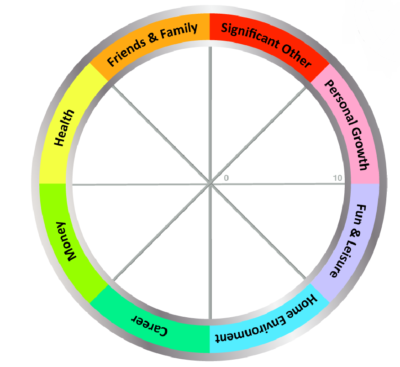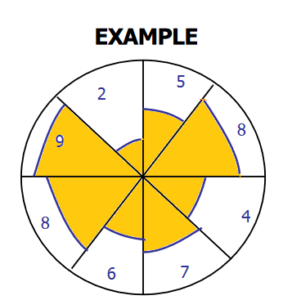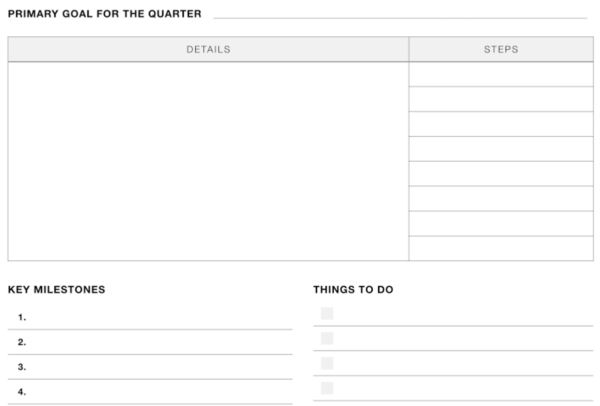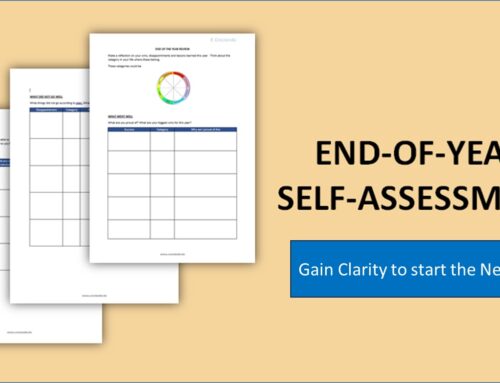Goal setting is a term that becomes popular at the beginning of each year. We hear about resolutions and how everybody is so motivated to achieve them. However, I always felt that the term resolution is more like “wishful thinking”. Let me tell you why.
Research has found that 92% of the resolutions people set at the beginning of the year are not achieved. The reason? Because there was not a clear goal, metrics, or action plan to achieve them. On the contrary, it has been scientifically proven that people are 40% more likely to achieve their goals when they have set them clearly. And there is even a 75% success rate if they have gone the extra step to write these goals down, and if they have a system to follow them up.
The good thing about goal setting is that we do not need to wait until the new year to get started. We can choose to set goals today and start tomorrow if we want to.
This is a question many of my Coaching clients come up with. And after more than 10 years of trial and error I have finally come up with a system that works for goal setting, so we can achieve what we strive for.
1. Assess the current situation.
First of all, we need to make an evaluation of where we are right now. Kind of a reality check. With my clients, we always start with the wheel of life. It is a simple exercise we all can do.
Download the template or draw the circle on a piece of paper. Then divide it into 8 sections.
Each of these pieces will receive a name: Physical and Emotional Health, Personal growth, career, Finance, Significant other, friends, family, Fun, and Leisure

The next step is to give a score to each of these categories. Think of the middle as the zero, and the edge of the circle will be the 10. We will give a number from 0-10 according to how we consider the situation right now. For example. If we give Health a score of ZERO, it will mean that we do not take care of our physical health at all. On the contrary, a score of 10 will mean that we are in top shape and that our nutrition is balanced and adequate. Think of a score of 10 as there is no more room for improvement.
Once you conclude by giving a score to each dimension, you will end up with something like this.

It will become apparent what areas of our life score high and others low. And here is where we can start thinking of the objectives we want to achieve. If one dimension has a score of 9, then probably we only need to take action to keep it as it is. But an area that scores 5 or less, will require quick action.
2. Define your why.
In my opinion, this is the most important step because when we set our goals, it is because we are motivated to get started. But inevitably we will find obstacles along the way and there will be times when it gets harder. This is the reason we should be clear about our why. Why are you doing this? Why is it important for you to achieve this result?
For example. Why do I want to spend more quality time with my significant other? Why is it important for our relationship? Or if you want you can flip it. What would it happen if I don’t make space for quality time?
Also, if it’s your first time setting up goals, it will be important to reflect on your values. This is something I recently discussed with a client with whom I’ve been working for 2 years. She recently changed jobs and knowing exactly what her values in life are (balance, flexibility) allowed her to make the right career move. This means that once you are clear on what you value -being this freedom, balance, career, service, etc- you will know if your goals are aligned with who you truly are. Feel free to download this template, so you can select the values you identify with. TEMPLATE VALUES
A piece of advice would be to write down your WHY. Because when the journey becomes hard, when you are losing motivation, and when you are about to give up. Going back to your WHY will bring you the perspective you need, and will boost your motivation again.
3. Define your goals and your success indicators (SMART GOALS)
Before I walk you through the process of creating goals, I want to remind you that the success indicators do not need to look the same for everyone.
For example. For the longest time HEALTH was usually paired up with a WEIGHT GOAL. However, this should not be the case. You could choose to measure HEALTH as you please and tie this objective to the success indicators that make sense for you. My clients for example have worked on different areas of health, and they have determined their own success indicators. One has building muscle mass as an objective, the other wants to run a marathon, and someone else wants to move more in general. So it is important to know that our success indicators do not need to look like everyone else’s.
To make sure we set clear goals these should be SMART. This acronym stands for:
– Specific: Be clear about what you want to achieve
– Measurable: Be clear on the metric you want to achieve
– Attainable: A goal should get you out of your comfort zone, but still be achievable
– Relevant: Is this the right time to work on this goal?
– Time-bound: Define a clear deadline.
Let me give you a couple of examples.
One of my clients came to one of his sessions wanting to set goals for his personal growth. He came with something in his mind: “I want to learn more”. But this was very vague. So we worked on making the goal SMART. After a few minutes of brainstorming, he came to the conclusion that he had no specific topic in mind to learn more about. So he decided that he wanted to read books on different topics and genres to find out what he liked best.
So the goal became.
I will read 24 books this year
This was very specific and measurable. He decided to split 24 books throughout the year and read 2 books per month. Then we checked if this was attainable. One book every two weeks was challenging but not impossible. The goal was also relevant, he really wanted to develop himself more, and probably explore new career paths in the future, so learning new things made sense. Finally, it was time bound. He could clearly evaluate if he had accomplished the goal or not.
So you might be curious. Did my client achieve his goal? Let me tell you he did! And not only that, he found a topic he is passionate about and this year he moved into taking courses and learning more about that topic, and hence keeps working on his personal growth.
4. Write them down
I started with this practice 4 years ago when I read a study from Harvard University, stating that writing your goals increases your chance of achieving them by 30%.
Some other striking information from this research was that 83% of the respondents had no mid or long-term goals, 14% of the population had goals and only 3% of them had goals and wrote them down.
It was also interesting to learn that the action of writing makes the unconscious mind absorb the information better, and basically sets off an internal compass
I started writing my goals 4 years ago in all dimensions of my life. Health, family relationships, personal growth, finances, etc, and when I look back at those notes, I can see how much has been accomplished.
5. Create an action plan and set milestones
So you sat down and wrote down your SMART goals, now it is time to create an action plan that will help you to achieve them. How? Think of the actions and habits needed to achieve that goal.
For example, your goal is: I will leave the corporate world and become a freelancer within 6 months.
So you will have to take many steps to make this goal a reality. You need to find out all the administrative steps you need to fulfill, you need to do market research and understand your customer needs in order to create a value proposition, you need to network and get new contacts, you need a draft business plan and make some financial projections, and you need to get some prospects of clients so you can hit to ground running as you leave your corporate job.
And these are only some pieces of the real work you need to do before you become a freelancer, but now you see the extent of the goal, you will be able to make chunks and set milestones for yourself, so your dream is achieved within 6 months.
6. Implement
Having the goals on paper is great, but that is only the plan. The real deal happens when we implement. So it is best to split the goals throughout the year. Try not to make them all bound to 31 December. But to spread them around the different quarters and set milestones as you go.

7. Follow up
One important tip that I have learned during these years is that you should periodically follow them up in order to check whether you are on the right track.
Reviewing and evaluating the status of a goal will depend on the type of goal and the deadline you set for yourself. If you have a yearly goal you could review the status every quarter. But if you have a quarterly goal, it will make more sense to review it once a month.
Remember that you can always change the plan. In the same way, we take an alternative road when there is an accident on the one that leads to our destination. If the original plan is not working, review it, adapt it or change it altogether
Did you enjoy reading this post? There is more interesting content on the blog






[…] the next step. Setting up the goals for the upcoming year. Make sure you check out the article Goal Setting: 7 steps to creating and achieving your goals, for a bulletproof method to get what you […]
[…] out the post: Goal setting – 7 steps to setting and achieving your goals, for a bulletproof method to do […]